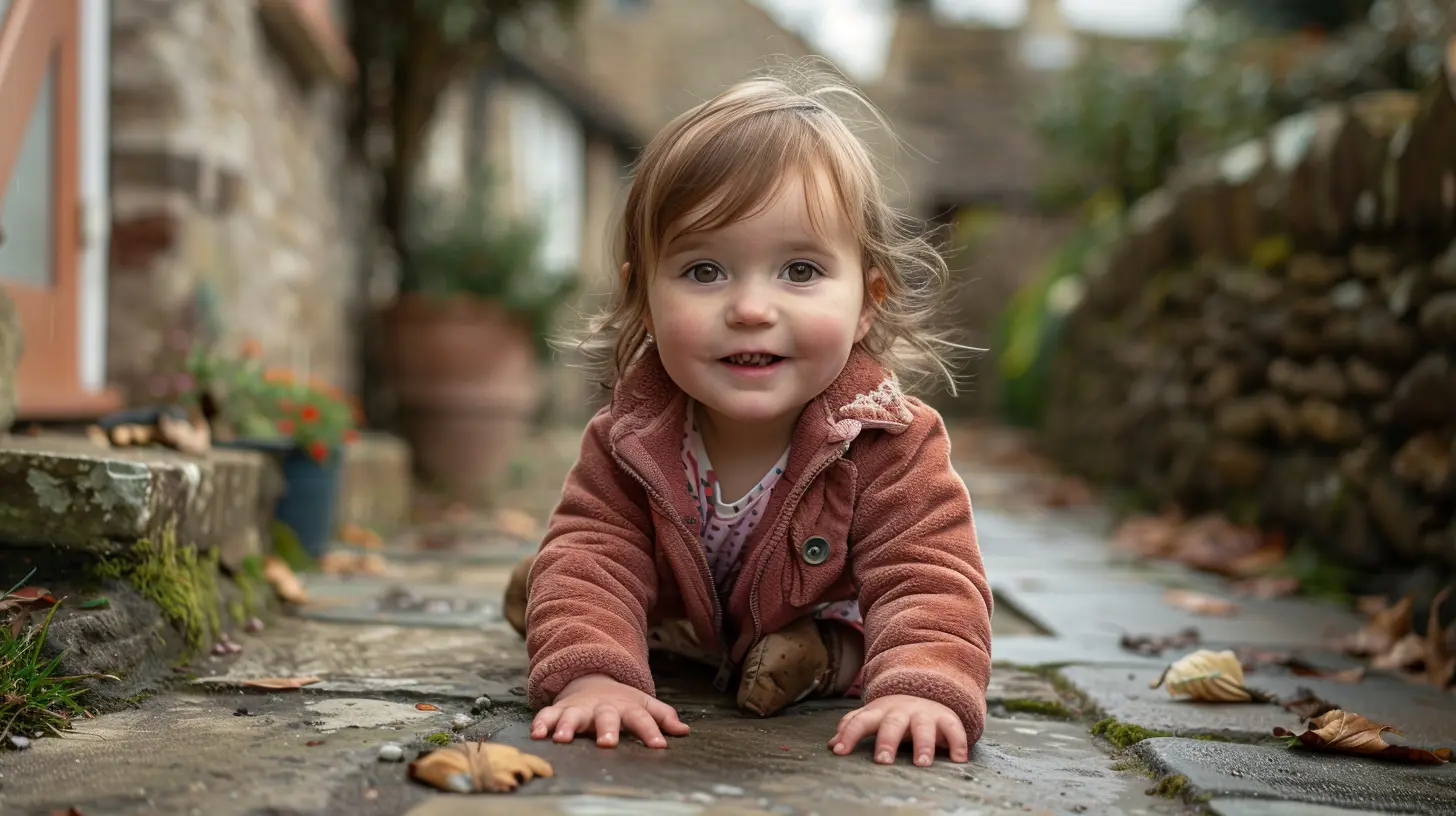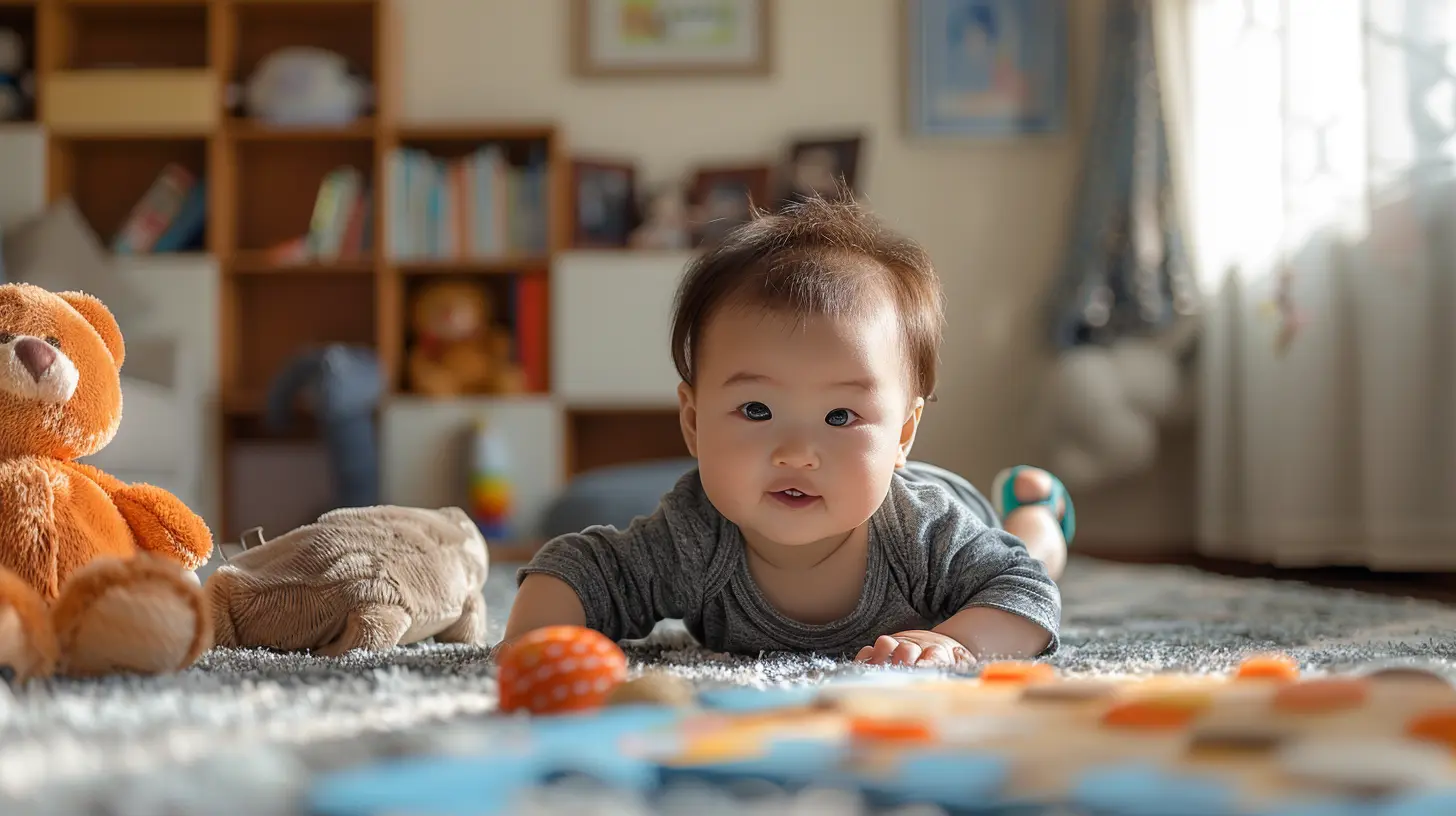How to Boost Your Toddler's Confidence and Self-Esteem
20 June 2025
As parents, we all want our little ones to grow up feeling strong, capable, and confident. But let’s be real—toddlers are still figuring out the world, and their self-esteem is just beginning to take shape. The way we interact with them during these early years plays a huge role in shaping their confidence for life.
So, how do you help your toddler build a foundation of self-worth and self-belief? In this post, we’ll look at practical ways to nurture your child’s confidence with love, patience, and encouragement.

Why Is Confidence Important for Toddlers?
Confidence and self-esteem aren’t just about feeling good—they’re the building blocks for success in life. A confident toddler is more likely to:- Try new things without fear of failure
- Develop independence and problem-solving skills
- Build positive relationships with others
- Handle challenges without feeling overwhelmed
When toddlers feel secure and valued, they grow into resilient, self-assured kids who believe in their abilities.

How to Boost Your Toddler’s Confidence and Self-Esteem

1. Offer Genuine Praise and Encouragement
Kids love to hear they’re doing great, but there’s a difference between empty praise and meaningful encouragement. Instead of saying, “You’re the best artist ever!” try, “I love how carefully you chose those colors for your drawing.”Specific and sincere praise helps toddlers recognize their strengths and feel respected for their efforts.
2. Let Them Try (and Sometimes Fail)
It’s tough to watch your child struggle, but allowing them to try things on their own is essential for confidence-building. Whether it’s putting on their shoes, stacking blocks, or feeding themselves, give them the space to figure things out.Failure is part of learning, and when toddlers see that mistakes aren’t a big deal, they gain resilience. You can say, “That didn’t work, but I love that you’re trying! Let’s try again together.”
3. Give Them Responsibilities
Even toddlers love feeling like they have an important job! Simple tasks like putting their toys away, helping set the table, or feeding a pet make them feel capable.When they succeed at small tasks, they'll start believing they can handle bigger challenges. Plus, it teaches responsibility and problem-solving along the way.
4. Encourage Independence
It’s tempting to do everything for your child because, let’s face it, it’s quicker and easier. But giving your toddler opportunities to do things on their own—like picking out clothes, pouring their own drink (with supervision), or brushing their hair—helps them gain confidence in their abilities.Offer choices, too! Instead of asking, “What do you want to wear?” give them two options: “Would you like the red shirt or the blue one?” This empowers them while keeping things manageable.
5. Be a Positive Role Model
Toddlers learn by watching us. If you show confidence in your own decisions, handle setbacks with grace, and use positive self-talk, your little one will pick up on those behaviors.Try saying things like, “I made a mistake, but that’s okay! I’ll try again.” Your toddler will learn that confidence isn’t about being perfect, but about believing in yourself even when things don’t go as planned.
6. Provide a Safe and Loving Environment
Feeling safe and supported is the foundation of confidence. When toddlers know they are loved unconditionally, they feel secure enough to take risks and explore the world.Simple gestures—like giving them hugs, making eye contact, and actively listening—reinforce their sense of worth. A predictable routine also helps toddlers feel more in control and confident in their daily lives.
7. Encourage Social Interaction
Social skills play a big role in self-esteem. Give your toddler opportunities to play with other kids through playdates, daycare, or family gatherings. Sharing, taking turns, and solving minor conflicts help them develop confidence in social settings.If they seem hesitant, gently guide them with phrases like, “You can say, ‘Hi, can I play with you?’” Encouraging social engagement gives them the tools to navigate relationships with confidence.
8. Validate Their Feelings
Toddlers experience big emotions, and they don’t always know how to handle them. Instead of dismissing their feelings—“You’re fine, don’t cry”—acknowledge them.Try saying, “I see you’re upset because your tower fell down. That was really frustrating.” Validating their emotions teaches them that their feelings matter and helps them develop emotional intelligence.
9. Avoid Harsh Criticism
It’s easy to get frustrated when your toddler spills something or refuses to listen, but how we respond makes a difference. Instead of saying, “You’re so messy!” try, “Spills happen—let’s clean it up together.”Criticism can crush a child’s self-esteem, while gentle guidance helps them learn without feeling like a failure.
10. Encourage Problem-Solving
Confidence grows when kids believe they can handle challenges. Instead of giving immediate solutions, ask questions like, “Hmm, what do you think we should do?”If they’re struggling with a puzzle, resist the urge to do it for them. Instead, guide them with hints: “That piece looks like it goes on the edge—where do you think it might fit?”
This builds problem-solving skills and self-assurance.
11. Celebrate Effort, Not Just Results
Success isn’t just about the outcome—it’s about the effort. Help your toddler understand that trying is just as important as winning.If they’re learning to jump or draw a circle, cheer for their progress rather than waiting for perfection. Say, “You’re working so hard on that!” rather than, “You did it perfectly!”
This teaches them to be proud of their efforts, even when things don’t go exactly as planned.
12. Read Books That Promote Confidence
Books are a fantastic way to teach toddlers about self-esteem! Stories featuring characters who face challenges, persevere, and feel proud of themselves can inspire confidence.Some great options include:
- The Little Engine That Could by Watty Piper
- Giraffes Can’t Dance by Giles Andreae
- I Like Myself! by Karen Beaumont
Reading together not only builds literacy skills but also reinforces positive messages about believing in oneself.
13. Spend Quality Time Together
Nothing boosts a child’s confidence like feeling valued. Set aside time each day for one-on-one activities—whether it’s reading, playing, or just chatting.Giving them undivided attention (without distractions like phones or TV) reassures them that they are important. That sense of love and connection builds a deep foundation of self-worth.

Final Thoughts
Raising a confident toddler isn’t about making them the best at everything—it’s about helping them believe in themselves. When kids feel supported, encouraged, and capable, they develop the resilience to face challenges with a strong sense of self.Remember, confidence grows over time. Celebrate their small victories, guide them through setbacks with kindness, and most importantly, let them know they are deeply loved just as they are.
Your toddler’s self-esteem starts with you—so keep cheering them on, one little step at a time!
all images in this post were generated using AI tools
Category:
Toddler MilestonesAuthor:

Max Shaffer
Discussion
rate this article
2 comments
Aisha Pratt
Great tips! Encouraging independence while providing a safe space for exploration is key. Celebrate small achievements and offer positive reinforcement regularly. Remember, your support and patience will help them build resilience. Keep fostering open communication to nurture their self-expression and confidence! Thanks for sharing!
September 26, 2025 at 3:12 PM

Max Shaffer
Thank you for your thoughtful comment! I'm glad you found the tips helpful—celebrating achievements and fostering open communication are indeed essential for building confidence in toddlers!
Drake Barnes
Empowering our toddlers is a beautiful journey! Celebrate their efforts, embrace mistakes, and nurture their unique strengths. Small, consistent encouragements can spark a lifetime of confidence. Keep shining!
June 23, 2025 at 3:41 AM

Max Shaffer
Thank you for your insightful comment! Celebrating our toddlers' efforts and nurturing their strengths truly lays the foundation for their confidence. Let's continue to empower them on this journey!


